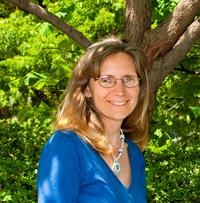Biocultural approaches to indicators of well-being and sustainability: bridging local to global scales

Eleanor STERLING
Center for Biodiversity and Conservation, American Museum of Natural History, New York, USA: sterling@amnh.org
(Seminar in English)
Pacific Island communities are facing unprecedented challenges in conserving natural resources and maintaining human well-being. In these place-based communities, biocultural connections, or the integrated social, economic, cultural and environmental linkages between people and nature are widely believed to play a critical role in improving and maintaining the resilience of both human and ecological communities. However, indicators of human or ecological well-being rarely reflect the integrated nature of these systems. Based on visioning exercises across multiple Pacific Island archipelagoes (Hawaiʻi, Fiji, Solomon Islands, Marshall Islands) on characteristics of vibrant biocultural landscapes and seascapes, we have identified key dimensions that describe a resilient biocultural state for Pacific Island communities and developed example indicators that measure the state of these dimensions. Additionally, we have assessed the United Nation's Sustainable Development Goals and the Convention on Biological Diversity's Aichi Targets to determine which of these goals or targets are relevant to Pacific Island communities. For goals or targets that were not obviously relevant, we have come up with recommendations for how they can be adjusted to be relevant or translated between local and global needs, in order to better resonate with communities and better reflect important connections between people and nature.
Recent publications:
Sterling et al. 2017 Biocultural approaches to well-being and sustainability indicators across scales. Nature Ecology & Evolution
Sterling et al. 2017 Culturally Grounded Indicators of Resilience in Social-Ecological Systems Environment and Society: Advances in Research.
Contact du Comité SEEM: seem@services.cnrs.fr. Contact du Labex CEMEB: cemeb-gestion@umontpellier.fr


